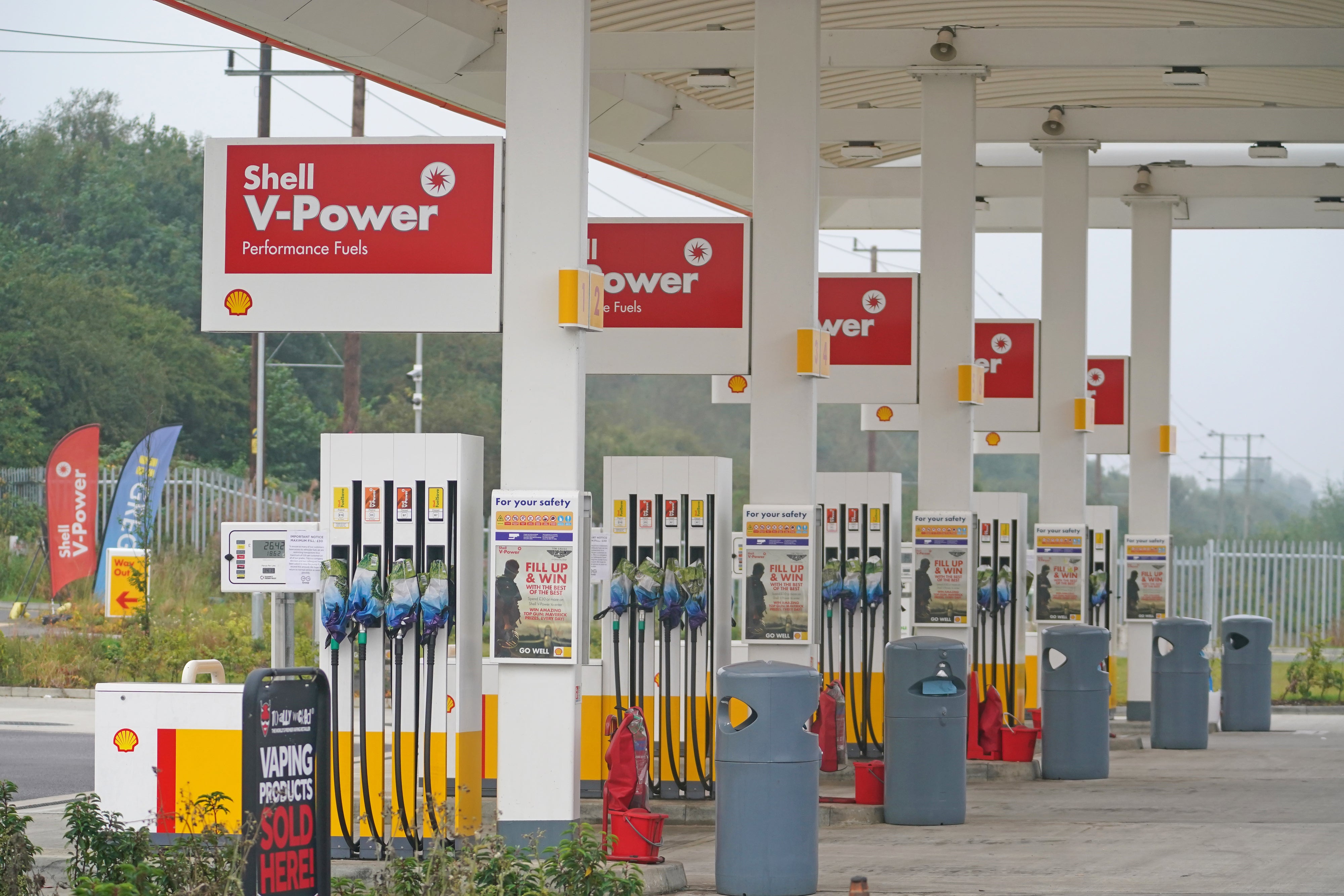PM ‘considering sending in Army’ to drive fuel trucks as pumps run dry
The Government has suspended competition laws to help the industry keep petrol stations topped-up amid panic buying by motorists.

Your support helps us to tell the story
From reproductive rights to climate change to Big Tech, The Independent is on the ground when the story is developing. Whether it's investigating the financials of Elon Musk's pro-Trump PAC or producing our latest documentary, 'The A Word', which shines a light on the American women fighting for reproductive rights, we know how important it is to parse out the facts from the messaging.
At such a critical moment in US history, we need reporters on the ground. Your donation allows us to keep sending journalists to speak to both sides of the story.
The Independent is trusted by Americans across the entire political spectrum. And unlike many other quality news outlets, we choose not to lock Americans out of our reporting and analysis with paywalls. We believe quality journalism should be available to everyone, paid for by those who can afford it.
Your support makes all the difference.The Prime Minister is said to be considering whether to call in soldiers to deliver fuel to petrol stations as pumps ran dry after days of panic buying.
Emergency measures were triggered on Sunday evening, with Business Secretary Kwasi Kwarteng choosing to suspend competition laws for the fuel industry to allow suppliers to target filling stations running low.
Multiple reports suggested that Boris Johnson on Monday will mull whether to follow that by taking the drastic step of sending in the Army to drive oil tankers as “frenzied buying” added to fuel supply issues caused by a lack of HGV drivers.
Transport Secretary Grant Shapps has refused to rule out requesting military assistance after queues for the pumps continued across the country on the weekend.
Mr Shapps has already backed down over his reluctance to import foreign labour to solve the HGV driver shortage by creating 5,000 three-month visas to bring in extra hauliers to address delivery pressures.
The Cabinet minister told the BBC the move would fix the “100 to 200” fuel tanker driver shortfall, as he urged motorists to be “sensible” and only fill up when needed to help alleviate the queues.
Long waits at filling stations saw police called to a scuffle at a north London forecourt as motorists continued their panic buying which was sparked after concerns from BP were leaked to the media that the lorry driver shortage could impact its ability to keep up with fuel deliveries.
The surge in demand led the Petrol Retailers Association (PRA) to warn that as many as two-thirds of its membership of nearly 5,500 independent outlets were out of fuel on Sunday, with the rest of them “partly dry and running out soon”.
Worry over depleted stocks led the Business Secretary to act following a meeting with oil companies and retailers on Sunday.
Mr Kwarteng opted to temporarily exempt the industry from the Competition Act to allow the industry to share information so it can target areas where fuel supply is running low.
Invoking what is known as the Downstream Oil Protocol, Mr Kwarteng said: “While there has always been and continues to be plenty of fuel at refineries and terminals, we are aware that there have been some issues with supply chains.
“This is why we will enact the protocol to ensure industry can share vital information and work together more effectively to ensure disruption is minimised.”
In a separate joint statement from the likes of Shell, ExxonMobile and Greenergy, the industry reiterated that the pressures on supply were being caused by “temporary spikes in customer demand, not a national shortage of fuel”.
PRA chairman Brian Madderson – who described the purchasing rate as “frenzied” – told the BBC the forecourt closures and depleted pumps were down to “panic buying, pure and simple”.
He said oil companies were giving refill priority to motorway service stations, with one such stop-off point reporting a 500% spike in demand compared to last week as road users flock to fill up their tanks.
As part of Government efforts to relieve wider supply chain pressures, 5,500 foreign worker visas will also be made available to the poultry sector as it strives to ensure a healthy array of turkeys are available for Christmas dinners.
But retailers warned that the decision to relax immigration rules to fix supply chain issues was “too little, too late” to keep shop shelves fully stocked this December.
British Retail Consortium director Andrew Opie said the truck driver shortage meant “we won’t be able to get all the products on to the shelves that we would have liked to.”
Mr Shapps said visas were “only one element” of the Government’s relief plan, as he admitted efforts to rebuild the domestic freight workforce could take years.
The package of measures involves ambitions to train 4,000 more lorry drivers, while the Army have been drafted in to provide extra HGV driving tests to reduce the backlog caused by the coronavirus pandemic lockdowns.
Nearly one million letters will also be landing on the doormats of people with HGV licences in the coming days enticing them to return to the job now that wages have risen.